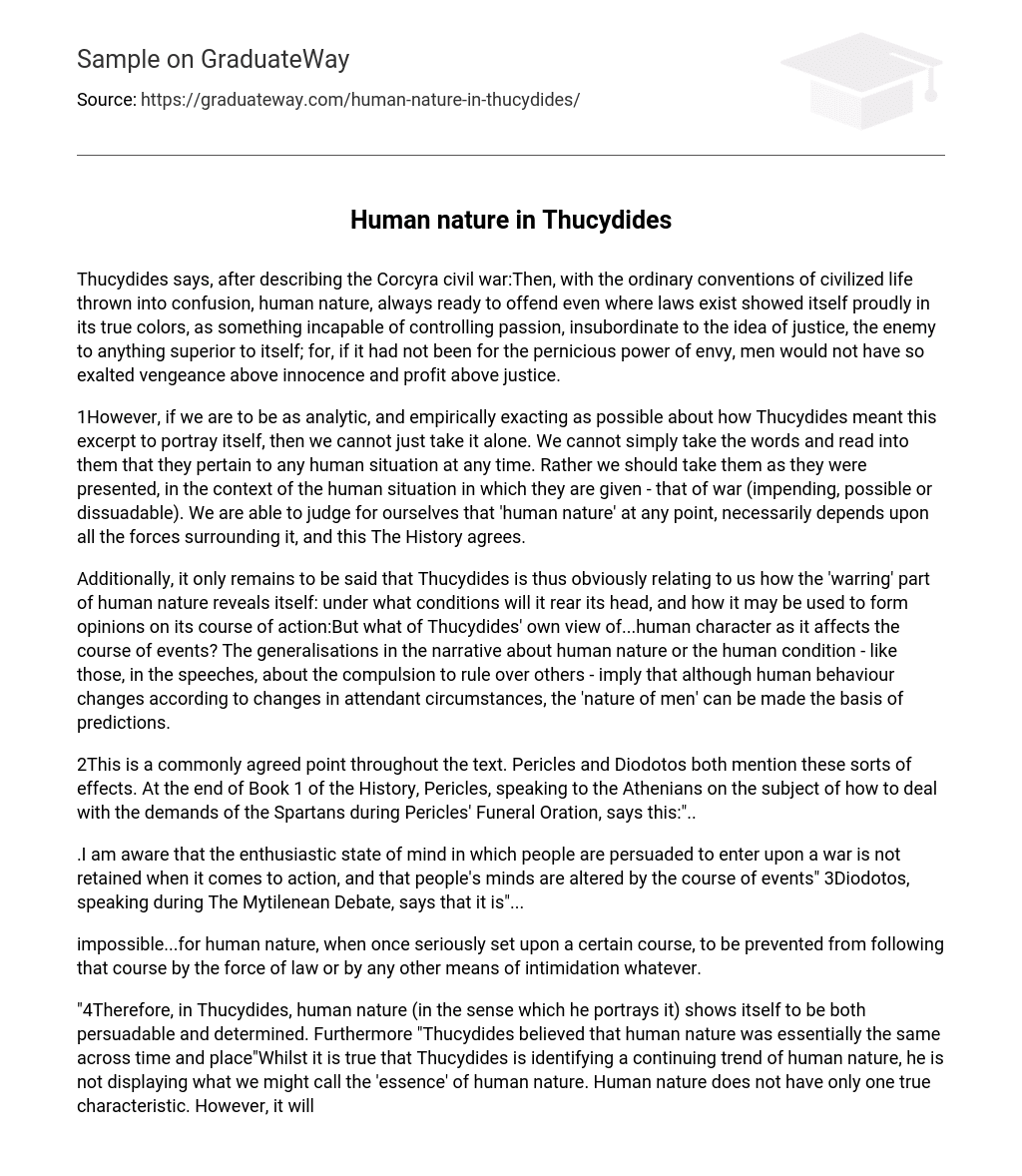Thucydides says, after describing the Corcyra civil war:Then, with the ordinary conventions of civilized life thrown into confusion, human nature, always ready to offend even where laws exist showed itself proudly in its true colors, as something incapable of controlling passion, insubordinate to the idea of justice, the enemy to anything superior to itself; for, if it had not been for the pernicious power of envy, men would not have so exalted vengeance above innocence and profit above justice.
1However, if we are to be as analytic, and empirically exacting as possible about how Thucydides meant this excerpt to portray itself, then we cannot just take it alone. We cannot simply take the words and read into them that they pertain to any human situation at any time. Rather we should take them as they were presented, in the context of the human situation in which they are given – that of war (impending, possible or dissuadable). We are able to judge for ourselves that ‘human nature’ at any point, necessarily depends upon all the forces surrounding it, and this The History agrees.
Additionally, it only remains to be said that Thucydides is thus obviously relating to us how the ‘warring’ part of human nature reveals itself: under what conditions will it rear its head, and how it may be used to form opinions on its course of action:But what of Thucydides’ own view of…human character as it affects the course of events? The generalisations in the narrative about human nature or the human condition – like those, in the speeches, about the compulsion to rule over others – imply that although human behaviour changes according to changes in attendant circumstances, the ‘nature of men’ can be made the basis of predictions.
2This is a commonly agreed point throughout the text. Pericles and Diodotos both mention these sorts of effects. At the end of Book 1 of the History, Pericles, speaking to the Athenians on the subject of how to deal with the demands of the Spartans during Pericles’ Funeral Oration, says this:”..
.I am aware that the enthusiastic state of mind in which people are persuaded to enter upon a war is not retained when it comes to action, and that people’s minds are altered by the course of events” 3Diodotos, speaking during The Mytilenean Debate, says that it is”…
impossible…for human nature, when once seriously set upon a certain course, to be prevented from following that course by the force of law or by any other means of intimidation whatever.
“4Therefore, in Thucydides, human nature (in the sense which he portrays it) shows itself to be both persuadable and determined. Furthermore “Thucydides believed that human nature was essentially the same across time and place”Whilst it is true that Thucydides is identifying a continuing trend of human nature, he is not displaying what we might call the ‘essence’ of human nature. Human nature does not have only one true characteristic. However, it will display many different characteristics over an extended period.
A look at our own daily lives can tell us this.





